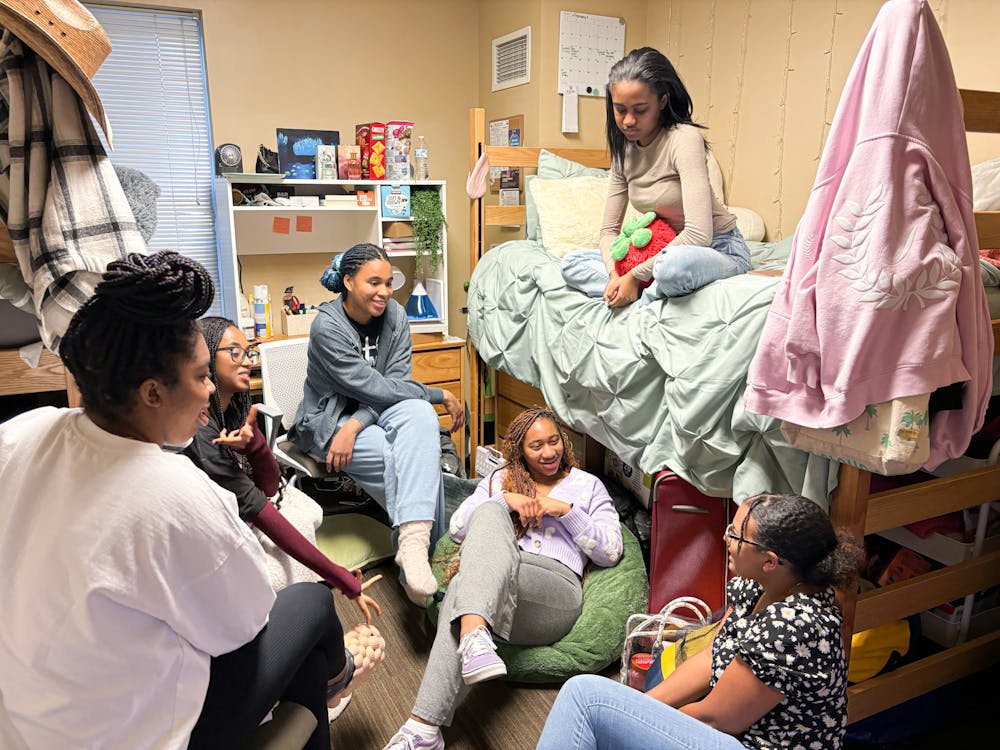Freshman Adrianna Stapleton was skeptical about what her social life would look like at Elon University due to the lack of diversity. That’s why she applied to live in the African Diaspora Living Learning Community for her first year.
“Now, most of my friends are on the floor, but when I first came, I was really nervous about making friends,” Stapleton said. “It gave me a good foundation to get out there.”
Elon’s African Diaspora LLC provides a residential space where students can live while learning about the Diaspora. The African Diaspora refers to the descendants of Africans who have migrated across the world, whether voluntarily or forcefully.
Elon’s Division of Inclusive Excellence states that 22% of Elon undergraduate students are not white. The second largest group is Latinx and Hispanic students at 6.8%, and Black and African American students make up 5.3% of Elon’s undergraduate population.
This LLC highlights African American, Black and African cultures worldwide. The LLC hosts floor events to help foster friendships and community year-round, such as game nights, costume parties and jeopardy nights. There are also events open to the greater Elon community, such as West African Dance classes and paint and sip events.
The African Diaspora LLC is just one example of a resource on campus for Black students. There is a range of clubs and organizations on campus, including the Black Student Union, Elon NAACP, the African Diaspora of Elon and the National Council of Negro Women — all of which can be found on Elon’s Phoenix Connect. Also on PhoenixConnect, is information on this year’s Black Solidarity Conference, hosted by the Center for Race, Ethnicity and Diversity Education. The event aims to foster discussions on issues affecting the Black community.
The African Diaspora floor was added to the list of LLC’s on Elon’s campus in 2018. Simone Royal ’17, assistant director of the Center for Race, Ethnicity Diversity and Education, is an adviser for the LLC and said when she was a student at Elon, she didn’t have the option to live with people who looked like her.
“I think it’s a good addition,” Royal said. “I think it does benefit that student population that strongly wishes to be a part of a community with similar identities; it’s also a place to gather for people who do and don’t live on the floor, which isn’t often seen on campuses.”
Sophomore Madison McCrainey, African Diaspora LLC ambassador, reflected on her high school experience and noted its lack of diversity. McCrainey said her high school established its own Black Student Union during her senior year, but it wasn’t a diverse group of Black people. McCrainey said having a welcoming space for Black students from differing backgrounds is important to her, and she values the community the LLC offers.
“Black people, we’re not just one stereotype; we’re not just one person. You can see that on the hall. We’re like a family, and it’s a very memorable experience,” McCrainey said.
Sophomore Nicole Rudd is the resident adviser for the LLC and emphasized that the floor plays a crucial role in providing Black students outlets for conversation, places to feel comfortable and ways to relax without the pressures associated with a predominantly white environment.
“I believe that it’s very important for predominantly white spaces, especially in America, to have an African diaspora area because it can be very challenging to go through a widely shared experience alone,” Rudd said.


